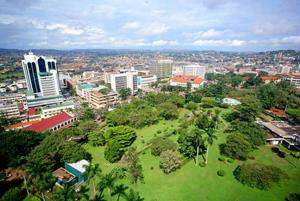4th Targeted Regional Workshop for GEF IW Projects in Africa

Background
The GEF IW:LEARN project (www.iwlearn.net), whose latest phase became active in 2016 and runs through 2020. has as one of its primary activities, the organization of regional workshops for GEF IW projects in three GEF regions: Latin America & the Caribbean, Asia & the Pacific and Africa. The workshops are also about transferring management approaches, tools and best practices amongst GEF projects and partners. Together with project-project twinning exchanges and the GEF Biennial International Waters Conference, these face-to-face training activities are part of a cycle of learning and partnership building across the portfolio and its partners.
Workshop Objectives
The overall aim of the workshop will be to raise capacity among GEF IW projects and partners on aspects of private sector engagement and water stewardship. The workshop takes place preceding the Africa Great Lakes Conference (https://www.greatlakesofafrica.org/), set to take place from 3 to 5 May 2017 in Entebbe, Uganda. This Conference, organized by the Nature Conservancy and supported by several organizations both global and regional, will provide training and experience sharing on a variety of topics central to the management of transboundary water resources. While this Conference has a lake-basin theme, most of the topics are of relevance also to river-basin and groundwater-system projects.
Thus, the workshop has the following objectives:
- Demonstrated tested approaches & methodologies to engage the private sector in GEF (and related non-GEF) both during project implementation as well as to sustain project outcomes and enhance water stewardship
- Discuss ongoing cross-cutting developments and priorities in the GEF IW portfolio
Workshop Outputs
- Collection of learning resource guides, presentations and other materials added as guidance on iwlearn.net, particularly through the IW project manager’s manual on the workshop topics
- Brief synopsis of applied methodologies & specific examples to engage private sector

























